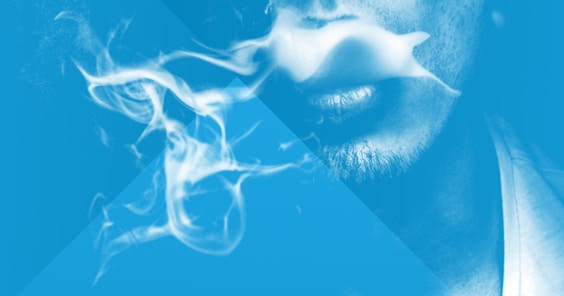I Am Sober is a free app that helps you get some control back in your life.

How Long Does Cocaine Withdrawal Last?
Last Updated: Thu, October 9, 2025Cocaine addiction is a serious condition that affects the body and mind. When someone stops using cocaine, they experience withdrawal symptoms as the body adjusts to the absence of the drug. This article covers what cocaine withdrawal is, its symptoms, and how long it lasts.
What Happens When I Stop Taking Cocaine?
Cocaine withdrawal occurs when a person who has become dependent on cocaine stops using the drug suddenly. The body experiences a range of uncomfortable symptoms as it adjusts to the absence of the substance.
While cocaine causes no physical withdrawal symptoms on its own, it does cause severe anxiety and depression. The severity can vary depending on several factors such as the person’s health, usage pattern, and how long they've been using the drug.
What Causes Cocaine Withdrawal?
Cocaine blocks dopamine neurotransmitters. Dopamine of course, is one of the chemicals in our brains that gives us a pleasurable sensation. Dopamine is naturally produced, lasts for a finite time and then leaves via a neurotransmitter where it is reabsorbed by the body. Cocaine prevents the dopamine from leaving (blocking over 75% of the dopamine produced). This is what causes the "high" as the pleasurable feeling lasts for much longer and to a much more concentrated degree.
However, because dopamine is supposed to be recycled, and cocaine hoards the dopamine, the brain begins to believe it has overproduced and gradually produces less and less dopamine on its own. In this way, even though the brain is producing less dopamine, it becomes rewired into believing the drug (cocaine) will produce the rest. So, especially when you've been taking cocaine for a long time, your brain can become dependent on the substance. When you stop taking cocaine, the brain continues to produce a lower volume of dopamine.
What this means is, you feel bad, and without the high you've had, you feel worse than you've ever felt which can lead to severe anxiety and depression.
Cocaine and Depression
One of the worst side effects of cocaine is depression. As a result, suicide is the biggest risks in detoxing and getting clean.
When you have the majority of your dopamine being blocked for a long enough time, you wind up, your brain continues to produce less and less. This means that when you stop taking cocaine, your brain is not producing dopamine at a high capacity, so even things that would've made you feel good are likely only making you feel a cut above feeling bad.
This is one of the biggest reasons to get help in one way or another when you choose to quit taking cocaine. Whether it's a medical professional or a loved one, it's important that someone knows what you're going through so that you don't risk being overwhelmed.
Cocaine Withdrawal Symptoms
Cocaine withdrawal symptoms can be both physical and psychological. Here are the common symptoms:
Physical Symptoms:
-
Fatigue: One of the first signs of cocaine withdrawal is intense tiredness.
-
Increased appetite: People may feel hungrier than usual as the body adjusts.
-
Muscle aches and pain: Physical discomfort, including body aches, can occur.
-
Disrupted sleep patterns: Insomnia or hypersomnia can develop during withdrawal.
-
Chills and night sweats may also occur during detox.
Psychological Symptoms:
-
Depression: This is one of the most serious psychological effects and can lead to suicidal thoughts.
-
Anxiety: Cocaine withdrawal often causes extreme anxiety.
-
Irritability and mood swings are common.
-
Cravings for cocaine: Intense drug cravings are frequent during withdrawal.
-
Trouble concentrating and memory problems may occur.
-
Psychosis: In extreme cases, withdrawal can lead to delusions and hallucinations.
How Long Will Cocaine Be In My System?
Cocaine has one of the shortest half-lifes of any street drug, with some people experiencing withdrawals symptoms as early as 1.5 hours – just 90 minutes – after their last dose. This will vary from person to person as it depends on the severity of the addiction, the method used to take cocaine, as well as the drug purity.
Is Rehab Necessary?
Cocaine is one of the drugs where detoxing can be done as an outpatient, meaning you don’t need to be within a medical facility and supervised during this time. That said, inpatient detoxing is available.
Detoxing as an inpatient is recommended if you’ve attempted to get clean in the past and relapsed. Additionally, if one of the long term side effects is co-occurring (such as mood swings or seizures), then inpatient supervision is recommended.
Cocaine Withdrawal and Medical Risks
While cocaine withdrawal is not usually life-threatening, there are several medical risks associated with the process, including:
-
Cardiac issues: Cocaine withdrawal can cause heart complications like arrhythmias or heart attacks, especially in those with pre-existing conditions.
-
Seizures: Long-term cocaine use can increase the risk of seizures during withdrawal.
-
Suicidal thoughts: The depression and lack of pleasure experienced during withdrawal can lead to suicidal thoughts. If you or someone you know experiences this, it’s crucial to seek immediate help.
Cocaine Withdrawal Timeline
Cocaine withdrawal typically lasts 7-10 days, and the following is what you can expect.
The Crash Phase: Days 1-3: These will be the hardest three days of your withdrawal. This is when many refer to the pain as the “crash and burn” phase. These days are emotionally challenging because you go from feeling high and a surplus of dopamine to a large deficit. The anxiety and depression is overwhelming for many. In addition to this, many suffer from insomnia and the sleep deprivation can cause headaches, paranoia, and pain.
Acute Withdrawal: Days 4-7: The next three days should result in some improvement. There will be increased irritability and sleep may come but won’t be restful. The craving for cocaine will be present as well, but it will be gnawing on you less; more manageable.
Post-Acute Withdrawal: Days 7-10+: This is where so much of your history with cocaine becomes a factor. Some people say they feel the symptoms completely disappear at this point. Others however, feel the cravings come back in full force. In general, this should be when you start to feel better however. If symptoms continue to persist, then it may be time to get outside help as well.
Cocaine may not have physical withdrawal symptoms, but the drug is notorious for having extreme psychological withdrawal symptoms.
Managing Post-Acute Withdrawal Syndrome (PAWS)
Occasionally, some people in recovery of cocaine will start to experience post acute withdrawal syndrome (PAWS). This can occur anytime between 3 and 6 months after your last use of cocaine. PAWS can cause you to feel depressed, feel intense cravings and experience emotional outbursts.
The biggest thing to remember is when this happens, your brain needs more time to heal. When you quit an addiction, your brain needs to rebalance the chemicals being fired around. This can take a great deal of time, but it is worth it.
Cocaine Treatment
Currently there are no FDA-approved medications to treat cocaine withdrawal. However that does not mean there are no treatments for cocaine withdrawal.
Treatment for cocaine extends beyond withdrawal symptoms. Typically, medical facilities show you how to cope in stressful environments as well as how to manage your cravings. For many people, having a tool set like this helps.
While some people can benefit from detoxing outpatient. Others should seek inpatient medical help if they suffer from depression, experience negative thoughts, or are suffering from seizures or arrhythmia.
I Am Sober is a free app that helps you get some control back in your life.




